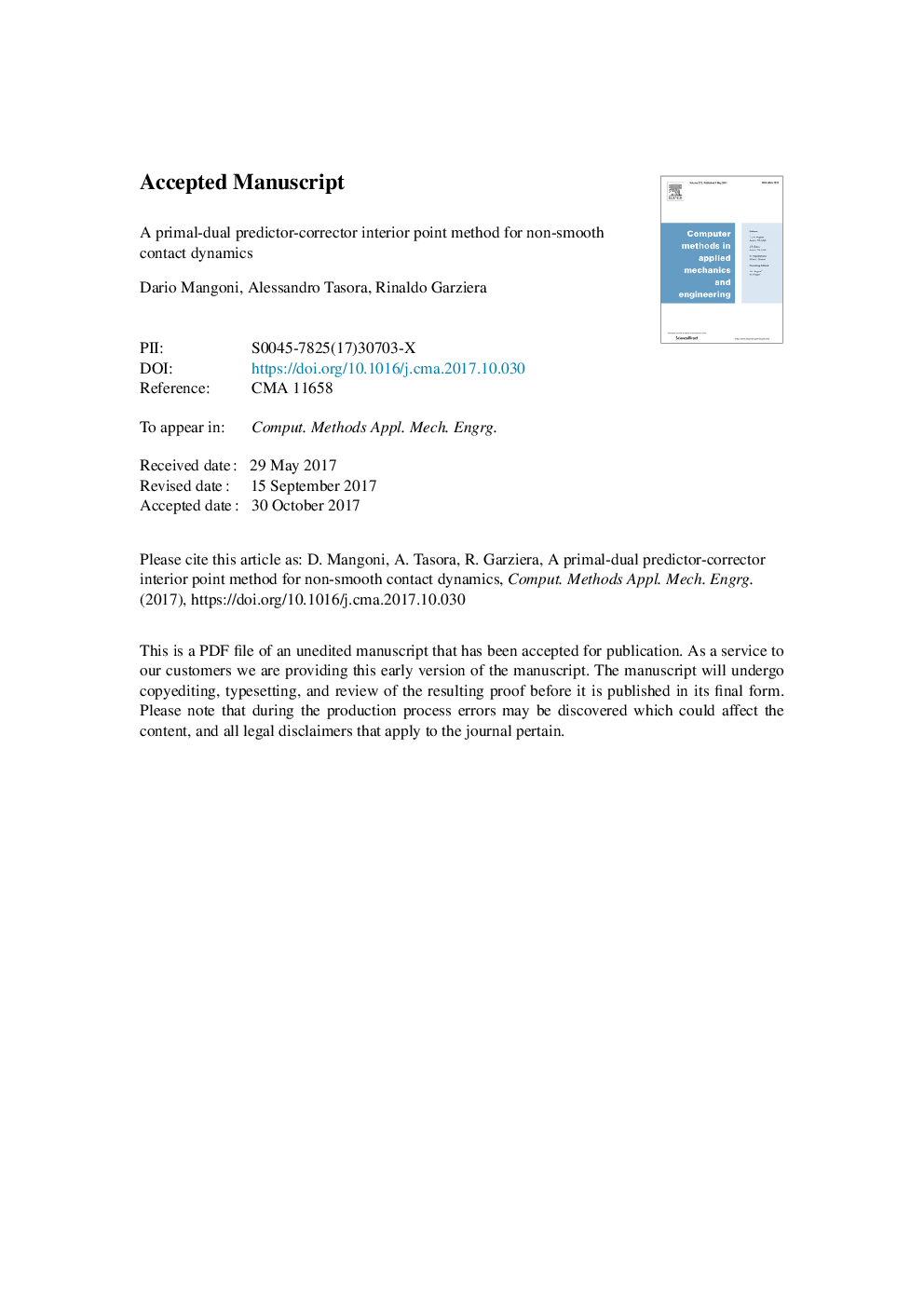| Article ID | Journal | Published Year | Pages | File Type |
|---|---|---|---|---|
| 6915705 | Computer Methods in Applied Mechanics and Engineering | 2018 | 27 Pages |
Abstract
Time-stepping methods for non-smooth dynamics are based on the solution of multiple complementarity problems: solving this class of problems represents a major numerical bottleneck, especially when dealing with near-singular and ill-posed systems such as those which feature large mass ratios between mechanical parts. To overcome these difficulties, we propose the adoption of a log-barrier method whose convergence properties outperform classical methods used in literature. This leads to a primal-dual interior point method, based on a custom Mehrotra predictor-corrector scheme, that is able to operate on the typical sparse matrices of multibody dynamics and that can accommodate tangent stiffness matrices arising from flexible bodies, if any. Although our original method addresses unilateral constraints only, it is possible to formulate it in order to include equality constraints, for example when adding joints. We implemented the algorithm in C++ in the open-source Project Chrono. Results show that the method converges to small residuals even in ill-posed scenarios that downgrade the convergence of other methods. Finally, for the sake of high efficiency, we tested different options for the linear solvers used in the inner iteration.
Keywords
Related Topics
Physical Sciences and Engineering
Computer Science
Computer Science Applications
Authors
Dario Mangoni, Alessandro Tasora, Rinaldo Garziera,
